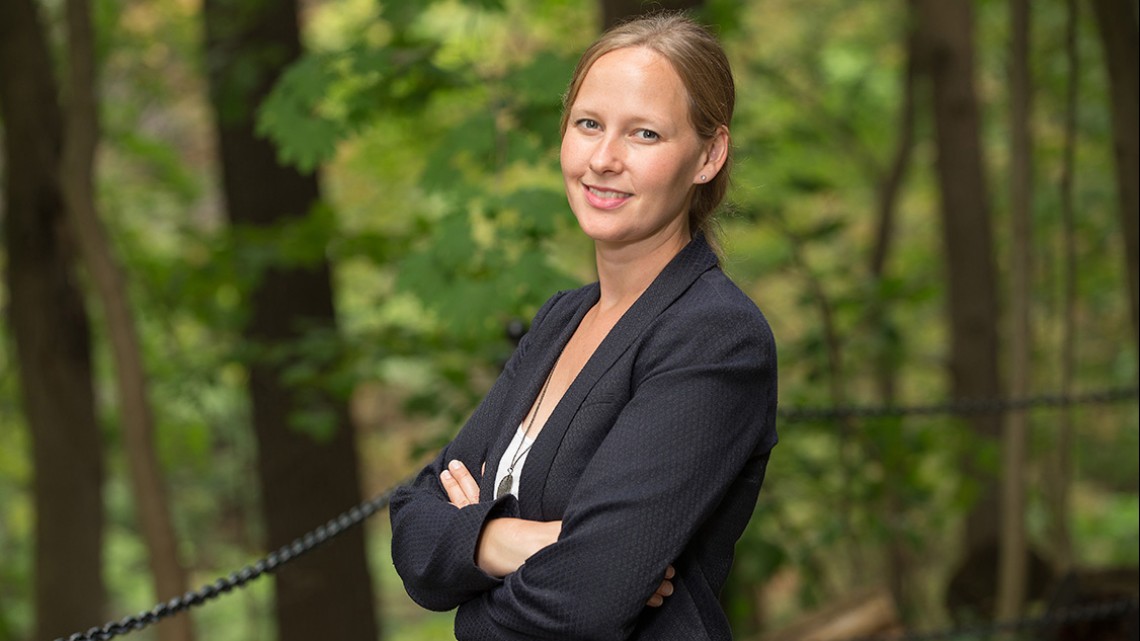
Kirstin Petersen
Kirstin Petersen wins Packard Foundation fellowship
By Melanie Lefkowitz
Kirstin Petersen, assistant professor of electrical and computer engineering, is among 22 early-career researchers honored with a Packard Fellowship for Science and Engineering, from the David and Lucile Packard Foundation.
Packard fellows receive $875,000, distributed over five years and intended to provide them with the freedom to take risks, explore new frontiers in their fields of study and follow uncharted paths that may lead to groundbreaking discoveries.
Petersen’s research involves the design and coordination of large robot collectives to achieve complex behaviors beyond the reach of a single robot. Her goal is to develop robust autonomous systems for use in areas including construction, agriculture and exploration.
“I’m incredibly excited about joining the distinguished ranks of Packard fellows,” Petersen said. “The foundation’s generous support will enable us to fundamentally reassess where intelligence belongs in embodied multi-agent systems, from the brain and body of individuals to the swarm mind and surrounding environment.”
Petersen – who studies how social insects coordinate in nature, for insights into how robot swarms might work together to perform tasks – has developed tools including instrumented hives, visual trackers, and computational models to observe and decode the collective intelligence of honeybees.
This, she said, will help researchers understand the fundamental science behind the exchange of intelligence and information in insect swarms, in order to help improve the design of robot swarms. It may also help support and protect endangered native pollinators.
She plans to use the Packard funds to work toward designing a completely autonomous collective of at least 10 robots capable of constructing and maintaining a structure over many weeks.
“This line of work can only be pursued through high-risk, high-reward research and a dedicated, long-term cross-disciplinary investigation,” Petersen wrote in her proposal.
Petersen, who joined the Cornell faculty in 2016, leads the Collective Embodied Intelligence Lab. Earlier this year, she was selected to participate in Seven on Seven by Rhizome, a program that pairs technologists with artists for an exhibit at New York City’s New Museum.
The Packard Fellowships for Science and Engineering program aims to allow the nation’s most promising early-career professors to pursue their science and engineering research with few funding restrictions and limited paperwork requirements. To date, the Packard Foundation has awarded approximately $429 million through the fellowship.
Recent Packard fellows include Ilana Brito, assistant professor and the Mong Family Sesquicentennial Faculty Fellow in the Meinig School of Biomedical Engineering (2017); Elaine Runting Shi, associate professor of computer science (2015); and Lena Kourkoutis, assistant professor of applied and engineering physics (2014). Éva Tardos, the Jacob Gould Schurman Professor of Computer Science, was a 1990 Packard Fellowship winner and now serves on the fellowship’s 11-member advisory panel.
Media Contact
Get Cornell news delivered right to your inbox.
Subscribe
